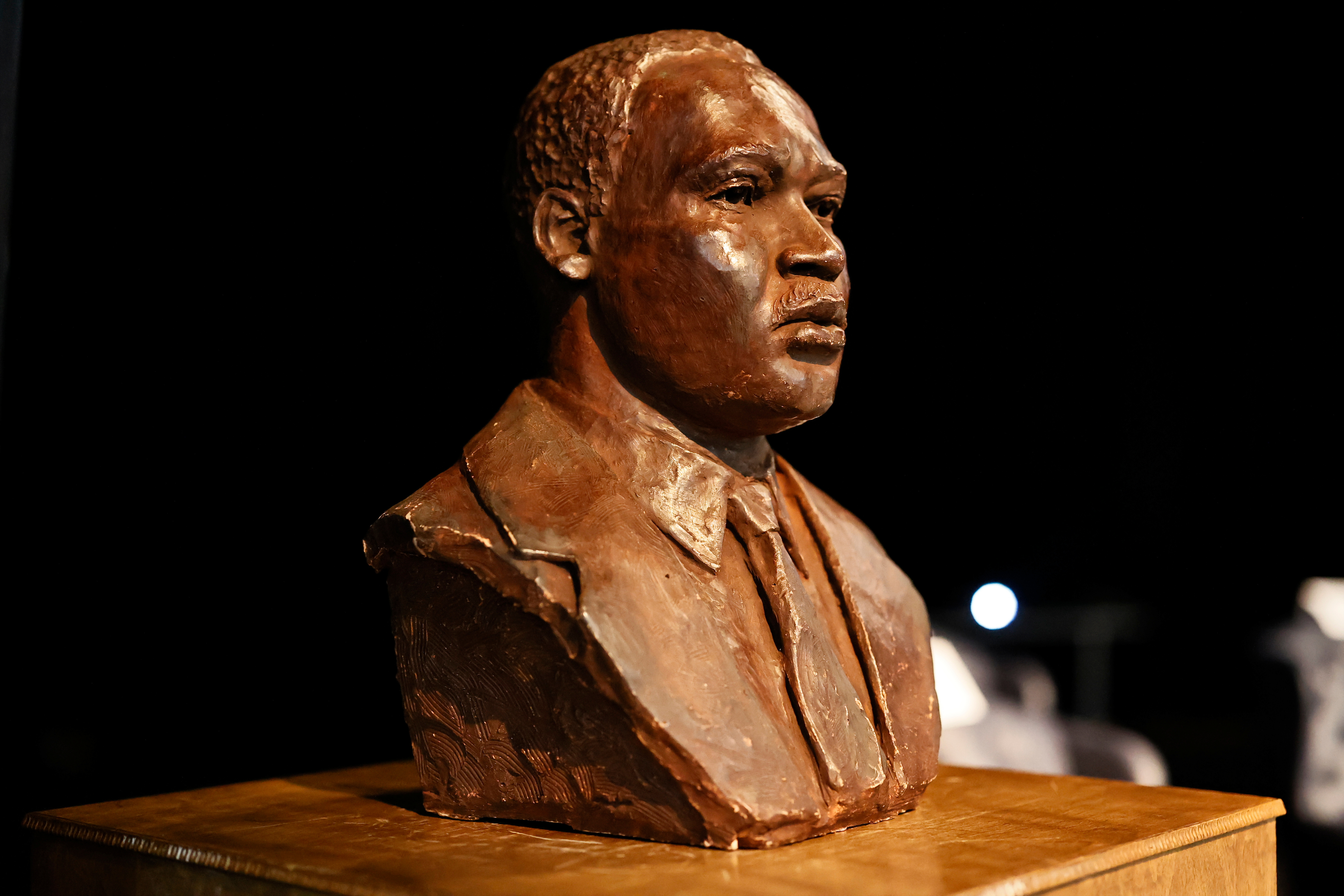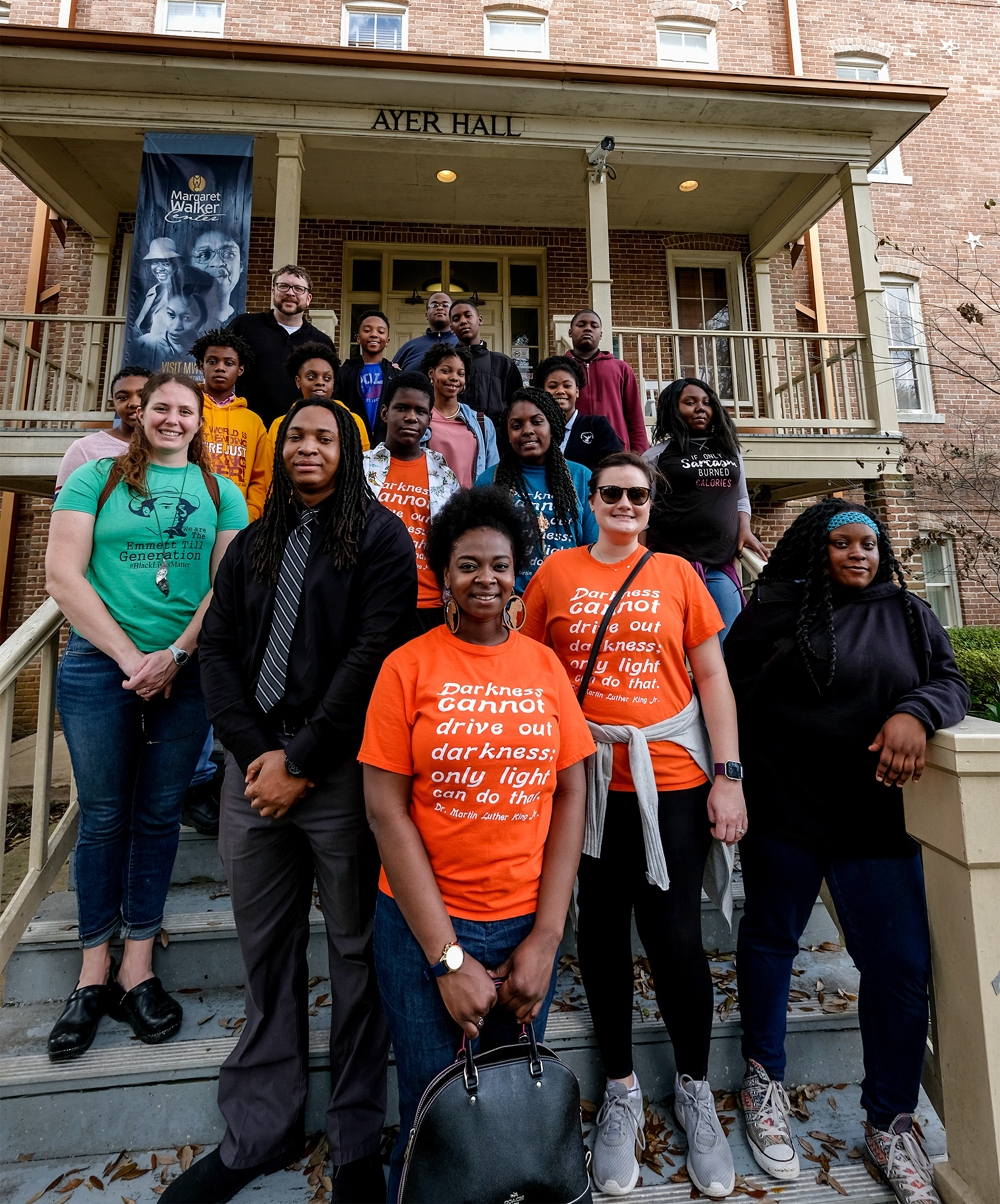
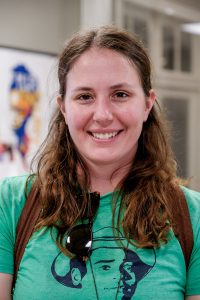
![]() [hr]
[hr]
Students from Sunflower County, Meridian, and Rosedale Mississippi toured the Jackson State University campus on Saturday, Feb. 24, as part of the Sunflower County Freedom Project (SCFP). Later, at the University’s COFO Civil Rights Education Center, the students would treat locals to “Crumbs from the Table of Joy,” a play set in the 1950s.
Kate Gluckman, SCFP executive director, said, “Our mission is really to create young leaders in the Mississippi Delta and to assist them in getting to and through college because we understand education is the seed to freedom.”
Founded in 1998, by three teachers in Sunflower County, the program uses education to challenge and engage area youth. Already in its 19th year, SCFP participants receive “intensive academic enrichment, mentoring, educational travel, physical education, drama performances, and art classes.”
Modeled after the Freedom Schools that materialized during Mississippi’s Freedom Summer of 1964, an organization handout states that 100 percent of Freedom Fellows matriculate into a college or university after graduation with 92 percent attending a 4-year institution and 3 percent entering the armed services.
“The freedom project is incredibly important in opening avenues and doors to young people who might not otherwise have some of the opportunities that they have thanks to this program,” said Dr. Robert Luckett, director of the Margaret Walker Center, who welcomed the group of middle and high school students as they gathered inside the COFO center.
There was an attentive, quietness as Luckett explained how the center served as the meeting site for the Student Nonviolent Coordinating Committee, Medgar Evers, and Fannie Lou Hamer. He also quizzed students on the system of sharecropping and Jim Crow to which they readily responded.
Gluckman explained that they use Mississippi history and philosophies associated with Freedom Summer to enhance their students’ potential as change agents. She also expressed that they want students to take pride in Mississippi’s role in the Civil Rights Movement.
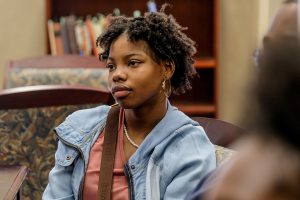
While touring the University’s sprawling campus Luckett, who is also an associate professor of history, pointed out to the students the Mt. Olive Cemetary Project and that administration tower was named for H.P. Jacobs, a runaway slave who founded the HBCU.
Seated on the brick wall in front of Alexander Hall, Luckett shared the events that led to the campus shooting deaths of Phillip Lafayette Gibbs, 21, and James Earl Green, 17, by the Mississippi Highway Patrol during one of several protests that stemmed from high racial tensions in 1970.
“Two were killed, and dozens were injured,” said the professor, as the students’ eyes appeared to scan Gibbs-Green plaza in search for evidence of the tragedy that unfolded.
The troop then headed to the Margaret Walker Center and took seats inside the Dr. Rod Paige Reading Room while Luckett discussed pivotal moments in the life of Walker and her many contributions as a writer. Calling Walker an activist, the professer said she used her pen to advocate for African-Americans as he urged the students to read her works: “For My People” and “Jubilee.”
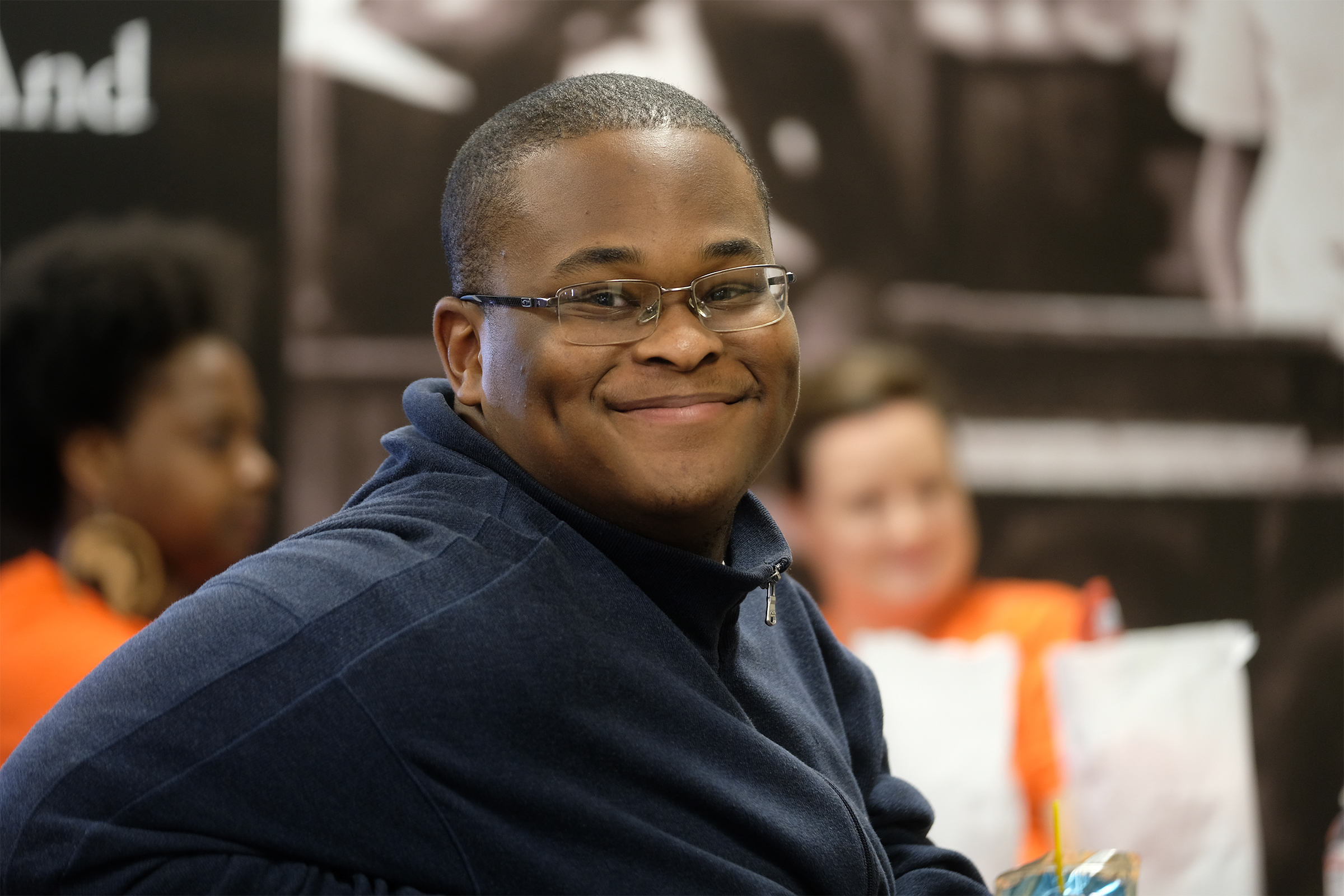
After the tour, students returned to COFO to eat brown bag lunches and prepare for the play described as the coming of age story of Ernestine Crumb, a teenager whose overly religious father moves her and her younger sister from Florida to Brooklyn, New York for a fresh start.
Ruleville Central High School senior Myesha Stovall said the SFCP is a place where she can be herself, learn about Freedom Summer, civil rights and “things they don’t always teach you in school.”
Of everything experienced during her visit, Stovall said Margaret Walker’s story impacted her the most.
“Her writing at such a young age, it stood out to me because of the journals she kept and how she left a legacy. She met a bunch of professional and famous people from Maya Angelou to Langston Hughes,” said Stovall, who would go on to give a funny and strong play performance as Lily Ann Green.
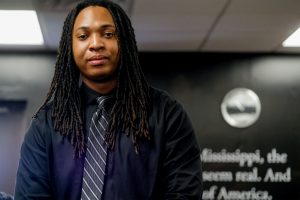
Ki Harris, director of operations of SCFP, explains that every year the group goes on a local drama tour to display their plays to the public. Therefore, he views the chance to perform their last drama of the year inside the COFO center as an exceptional and fitting opportunity.
“I thought it was important for us to spend time with Dr. Luckett who knows so much about Mississippi.” Harris said, “The walk around campus while he gave us the history of this building, this campus and town gave us a good framework before we hit the stage.”
Ashton Weeks, an eighth-grader from Ruleville Middle School admits he was skeptical about joining the SCFP. But after his mom and teacher convinced him to give it a try, he said he now enjoys it. “I would encourage a lot of people to join. It’s an enriching environment, and I really like it,” he said.

Weeks said he was impressed at the amount of information he learned during his visit to JSU.
“I never really paid attention to the history of places, and when I came here, I wasn’t expecting any surprises. But it was a lot of surprises. I never knew what the COFO center was or a lot about Margaret Walker. I never knew about any of this,” he exclaimed.
Gluckman said that she hoped that through the trip students would recognize Jackson State as a collegiate option with an abundance of history and tremendous potential to help them achieve their academic goals. She also wanted them to understand walk in the footsteps of activists and be galvanized and know that they can do the same.
“We’re trying to expose them to people who are doing the work and places that are doing the work and again have them feel a real pride in what Mississippi has done and what Mississippi continues to do.”






